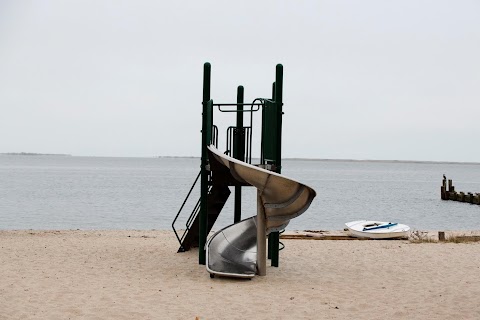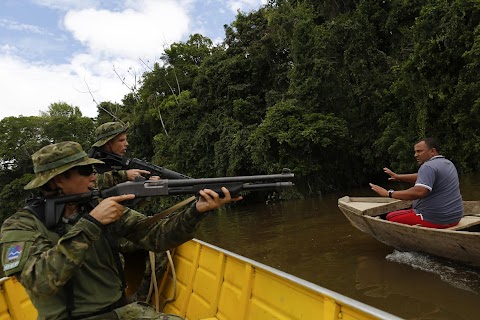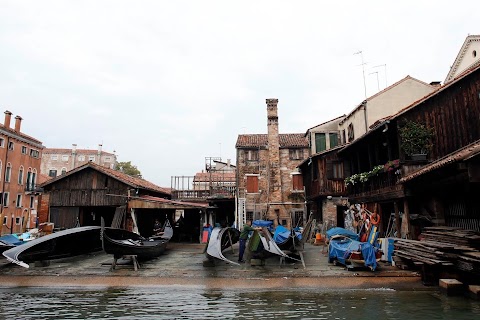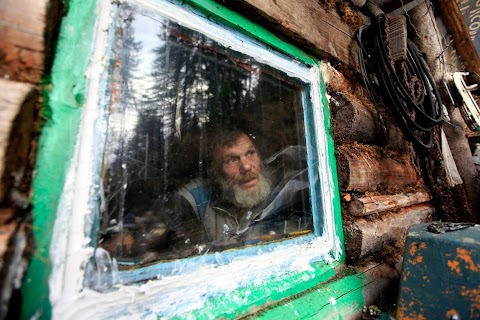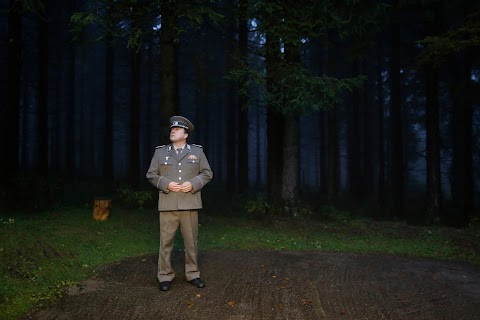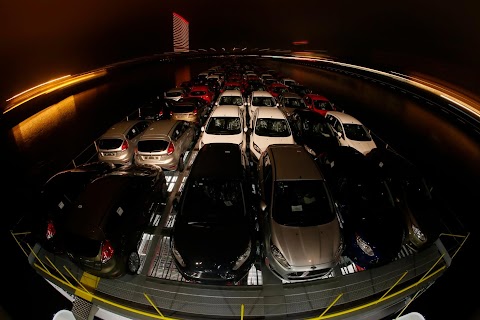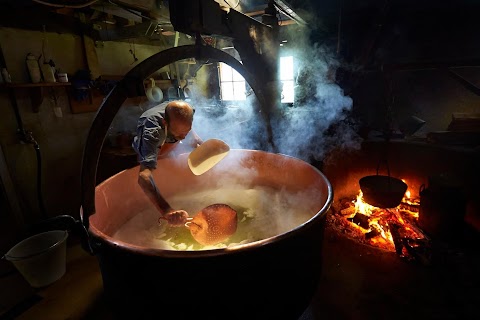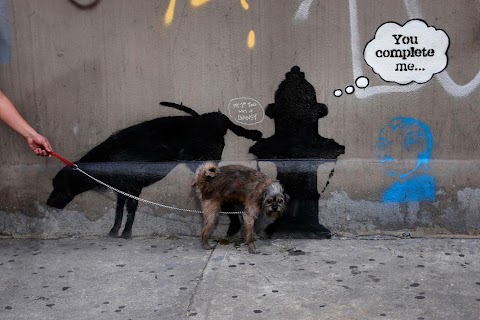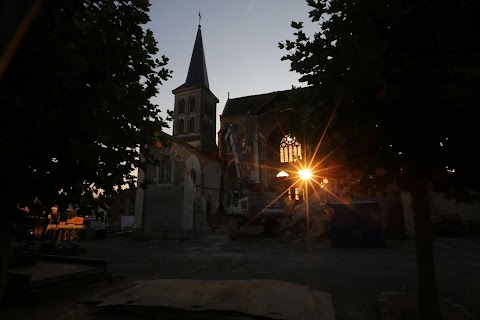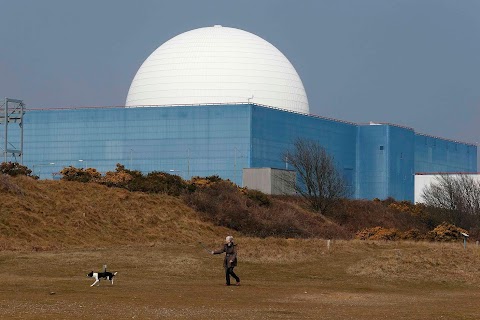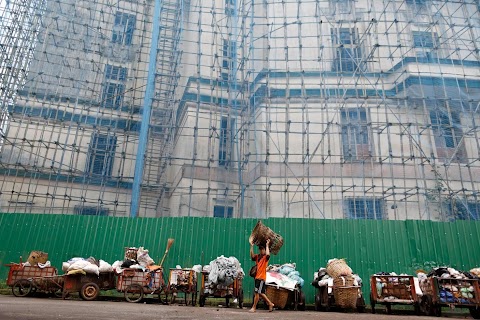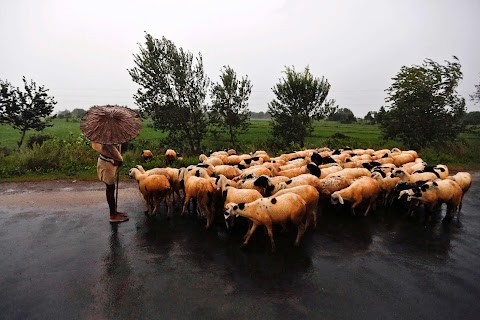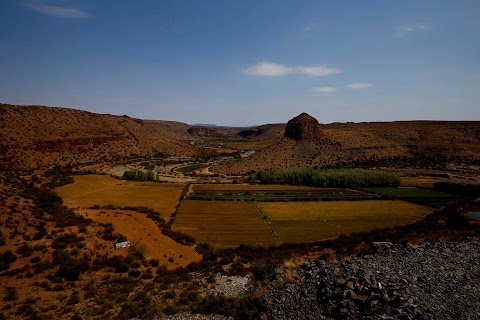
Water, work and fracking
 Mike Hutchings
Mike Hutchings
A patch of irrigated farmland breaks up the otherwise arid landscape of the Karoo, a stunning semi-desert wilderness that stretches across the heart of South Africa.
The Karoo has long attracted artists, hunters and the toughest of farmers. But now, if energy companies and the ruling African National Congress (ANC) get their way, it will soon also be home to scientists investigating whether shale gas extraction, known as fracking, could work here.
Panorama:
A tall aloe plant dominates the barren landscape of the Karoo.


Fracking, or hydraulic fracturing, involves digging wells up to 4 kilometres (2.5 miles) deep, then pumping in large amounts of water mixed with chemicals under high pressure to crack the shale rock and release the gas.
The technique has revolutionised the U.S. energy market, but it remains controversial in many countries, not least because opponents say it can endanger water supplies.
In 2011, the company Royal Dutch Shell applied for an exploration licence in South Africa, covering more than 95,000 square kilometres, almost a quarter of the Karoo. But the region is a fragile environment with very little water, and local suspicion of fracking runs high.
Nieu-Bethesda, a village of 1,500 people some 750 km (470 miles) south of Johannesburg is a case in point. The only permanent water supply is a spring that wells up from deep within the surrounding mountains. The stone furrow pictured here helps carry the water through town.
Any interruption to this spring's flow or quality and Nieu-Bethesda risks dying out.

"Shell must stay away from here," said 59-year-old Molly Nikelo, an unemployed grandmother in Nieu-Bethesda, who supplements her meagre monthly state hand-out by cultivating a small plot of rare purple garlic for sale in expensive eateries in Durban.
"What about the water? It supplies everybody and only comes from one place. People drink it, wash in it and grow vegetables with it," she said.

The pro-fracking lobby argues that exploiting the country's shale reserves, estimated to be the eight largest in the world, could transform South Africa's economy. A study commissioned by Shell said the industry could create hundreds of thousands of jobs.
With an election in six months, that argument has gained traction, especially as the ruling ANC is struggling to come up with answers for the millions of impoverished black citizens - like those living in the poor township pictured here - for whom life has changed little in the two decades since apartheid.
In this context, emotions are being stirred by the legacy of white-minority rule that has left a handful of wealthy whites in control of most of South Africa's land, and blacks in dead-end townships waiting for jobs that never arrive.
Slideshow

A truck throws up dust as it drives down a road cutting through the arid expanse of the Karoo.

A tin shack stands beside a road near the village of Nieu-Bethesda.

Spring flowers blossom in the scrubby landscape.

Game farmer Hennie Barnard looks out over his land in the Karoo. He says that he realises South Africa needs energy, but he fears fracking will disturb agriculture and could affect the country's food security.

Piet Makwena tends his cabbages in a township in Nieu-Bethesda, where water supplies are scare.

People walk past a derelict building in the village.

A dog lies in the afternoon sun outside a shack in Nieu-Bethesda.

Farm labourer Lano Williams and construction worker Marno Koopman stand with a pair of cart horses in a township outside the village. The young men fear hydraulic fracturing will pollute meagre water supplies and destabilise agriculture, which has for three centuries been the mainstay of the local economy.

A child carries water up a rocky hill in Nieu-Bethesda.

Scrubby vegetation grows near the town of Aberdeen.

Cracked earth is left behind after a watering hole dried up on a farm near the town.

Antelope bones are scattered across the parched landscape.

Sheep gather around a watering hole near Aberdeen in the Karoo.

The surface of the muddy watering hole reflects rolling clouds.

A windmill pumps water from a borehole near Graaf Reinet, a town in the Karoo.

The sun sets over a road nearby.

The mountains by the Valley of Desolation, in the Karoo, are illuminated in the twilight.
